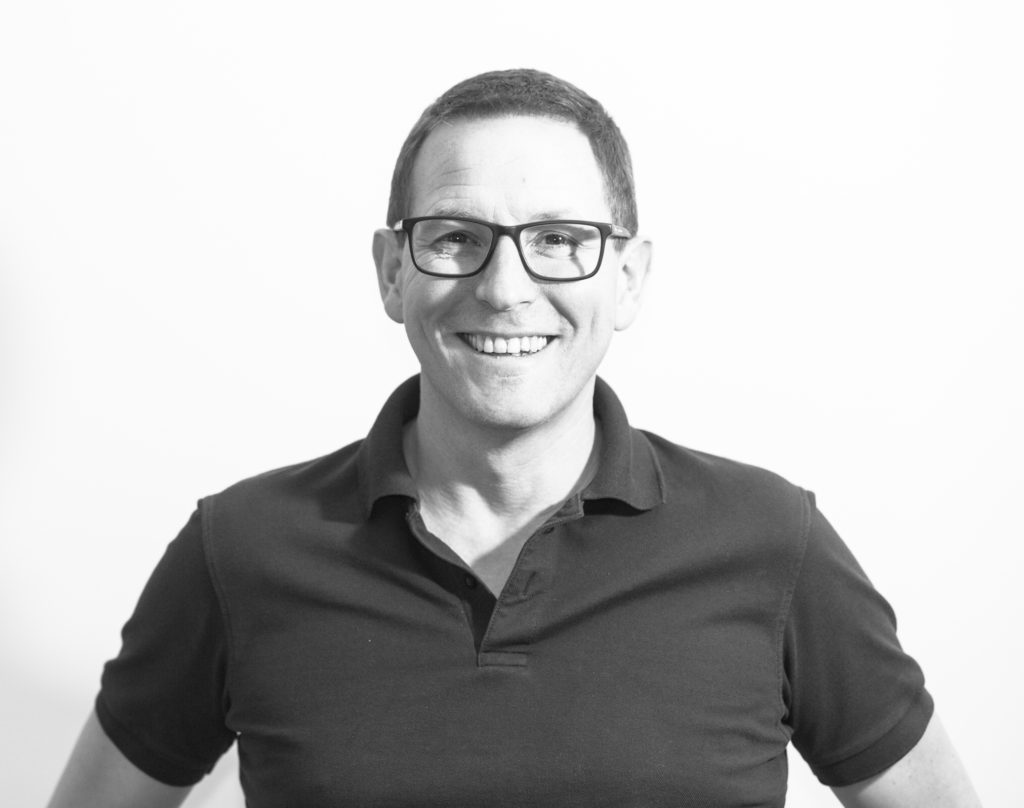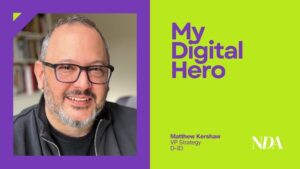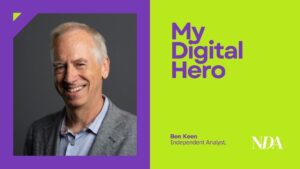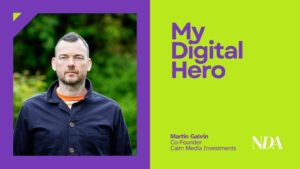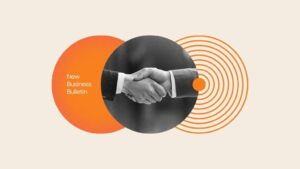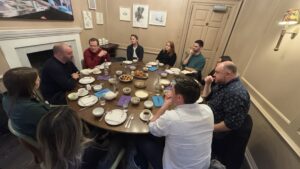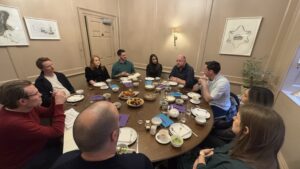We’re asking some of our industry’s leading figures to nominate their digital hero and to explain what’s so special about them.
Richard Robinson is Managing Director at Xeim, Econsultancy and Oystercatchers. Previously a marketer at companies including The Coca-Cola Company and McDonald’s, he also worked at agencies including Publicis.
He’s an award-winning diversity advocate and is ranked in the top 12 men championing women in business by the Financial Times.
Who is your digital hero?
Pip Jamieson. Founder of the Dots. She’s an unstoppable force akin to high-strength heroin and I love everything she does.
It feels almost impossible to remember a time before The Dots. From humble beginnings in 2013, the community with the most compellingly cheerful of propositions, ‘Join the Dots’, has accelerated into a force that’s often described as LinkedIn for the creative community.
What has she done to win hero status in your eyes?
Pip set out to change the rules of connection, to build a platform for the creative and digital community that offered a radical alternative to the binary functionality of LinkedIn and the anachronism of the traditional CV worship. A home where no-collar workers, creators, makers, entrepreneurs, freelancers and creative & digital professionals in the broadest sense would be judged on the quality of their work.
An online space where they could meet, share and grow with like-minded collaborators, somewhere that was different. This vision makes Pip pretty special in my book because she set out to disrupt the known world of work and change the rules for the greater good of all.
However, in creating The Dots Pip’s also needed to successfully bust through and trample on wall upon wall of legacy structures that have no place in today’s economy. According to Facebook research, the UK is missing out on a £10.1bn boost to the economy by not tackling challenges facing women who want to start their own businesses.
In parallel, the Entrepreneurs Network found that just 9% of funding for UK start-ups goes to female-run businesses, with men 86% more likely to be venture-capital funded and 56% more likely to secure angel investment. Going a stage further, Allbright revealed that only 2.2% of all global venture capital went to female founders in 2016.
By joining the dots Pip changed the game, challenging investors to think differently and creative and digital professionals to engage in a platform that better reflected their needs.
How has her heroism helped drive digital in your eyes?
Pip’s commitment to talent, tech and talent in tech has enabled her to create a community that inspires, drives and grows the opportunity that digital affords to all businesses.
To quote Pip directly “Creativity is our secret weapon. Soon machines will drive, serve customers, code, clean, manufacture, do our accounts and legal work. What are humans good for? Creativity! So, if we want our children to have jobs and make our economies thrive, we need to support them to bring our creative ideas alive”.
She not only talks the talk, but she walks the walk through The Dots.
What is the biggest challenge in digital we need another hero to solve?
Time in its most traditional sense. Businesses, and people, are still hoodwinked that the norm of the 38-hour week is fit for purpose in an era when people consume content and purchase product 168 hours a week.
Business is closed for 80% of the time life is open. Without proactive and radical change to everyday working practices many organisations are unlikely to last beyond the next few years. I can’t wait to see who cracks this.
What is your most heroic personal achievement so far in digital?
For the past three years INvolve, leaders in diversity and inclusion in business, have partnered with The FT (2017 and 2018) and Yahoo Finance (2019) to identify male advocates, or HERoes, who take positive action to champion women in the workplace.
I’m incredibly proud and humbled to have appeared in these lists alongside some of the most iconic leaders in business, representing the digital, marketing and creative communities.
I’m looking forward to a future where everyone gets an equal chance in the workplace regardless of who they are or where they come from.



